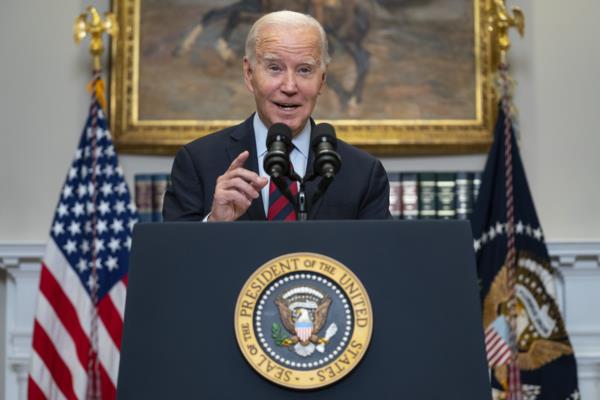
President Joe Biden is making strategic moves to bolster his presidential campaign ahead of the general election. This week, he announced the forgiveness of $1.2 billion in student debt, bringing the total amount forgiven to $138 billion. This initiative is aimed at appealing to the youth vote, a crucial demographic for his re-election bid.
Following a Supreme Court ruling that deemed his previous attempt at student debt forgiveness illegal, Biden is now implementing relief in installments. He is personally reaching out to borrowers via email to inform them of the impending debt relief, underscoring the political nature of this move.
It is not uncommon for presidents to seek recognition for their actions, as evidenced by previous instances like stimulus checks bearing former President Donald Trump's name. Biden's focus on student debt relief reflects a concerted effort to shore up support among young voters who may have concerns about his economic policies.



Additionally, leaks from the White House suggest that Biden is considering executive orders to address the issue of migration at the border. While this move may draw criticism from some within his party, the administration recognizes the urgency of controlling the flow of migrants.
However, potential executive actions on migration face legal challenges and political considerations. Biden is wary of being labeled as the 'deporter in chief,' a moniker associated with former President Barack Obama's immigration policies. This reluctance may influence his decision-making process regarding emergency measures at the border.
As Biden navigates these complex issues, his political advisors are working to realign his coalition and address concerns that could impact his standing in key swing states. The president's decisions on student debt relief and border control will likely shape the trajectory of his campaign as he seeks to secure support across various demographics.







